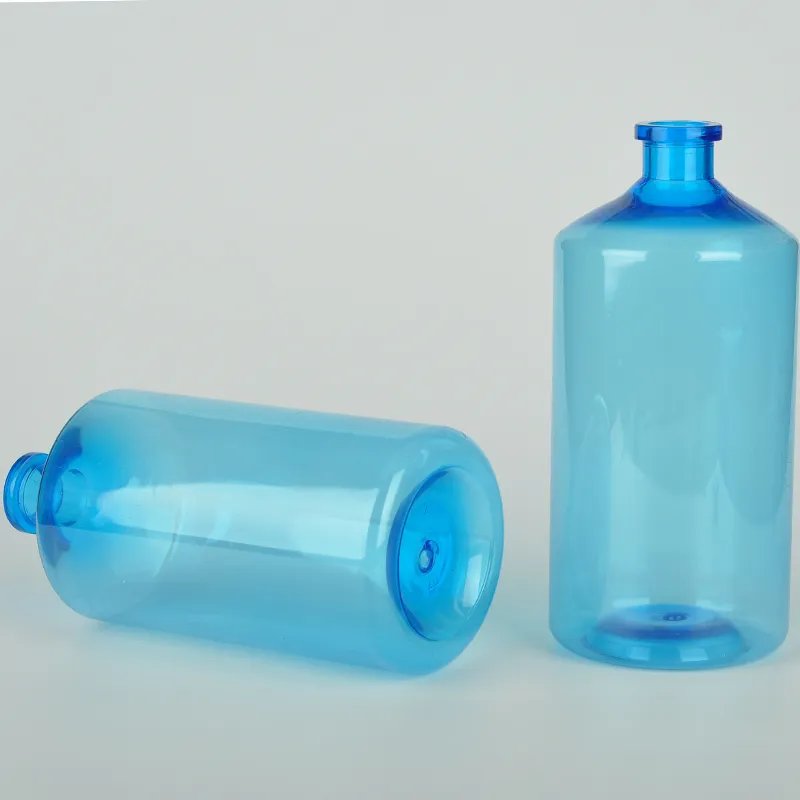medical plastic bottles
The Importance and Versatility of Medical Plastic Bottles
In the realm of modern medicine and healthcare, the need for effective and safe storage solutions is paramount. One of the unsung heroes of this industry is the medical plastic bottle. These bottles, engineered specifically for medical applications, serve a variety of purposes, including the storage of pharmaceuticals, laboratory samples, and various healthcare products. Their design, function, and the materials from which they are made are critical to ensuring the quality and safety of the contents they hold.
Plastic bottles in the medical field are primarily made from high-quality materials such as polyethylene (PE), polypropylene (PP), and polyvinyl chloride (PVC). Each of these materials has its own unique properties that make them suitable for different medical applications. For instance, polyethylene is known for its durability and resistance to impact, making it an excellent choice for storing liquid medications. Polypropylene, on the other hand, offers high-temperature resistance, making it ideal for products that may need to be sterilized.
One of the key advantages of medical plastic bottles is their lightweight nature. Compared to glass, which is often heavier and more fragile, plastic bottles are easier to handle, transport, and store. This attribute is especially crucial in medical settings, where efficiency is of the essence. Additionally, plastic bottles can be manufactured in a wide range of shapes and sizes, catering to various medical needs from small vials for blood samples to large containers for bulk medications.
Safety is another critical aspect of medical plastic bottles. In the pharmaceutical industry, bottles must adhere to stringent regulations to prevent contamination and ensure patient safety. Many medical plastic bottles are designed with tamper-evident features. These features provide an extra layer of security, ensuring that the contents have not been altered or compromised prior to use. Furthermore, the inert nature of many medical-grade plastics means they do not react with medications, thereby preserving the efficacy of the drugs stored within.
medical plastic bottles

In the laboratory setting, medical plastic bottles play a vital role in sample storage and transportation. These bottles are often utilized to hold biological samples, which may include blood, urine, or other bodily fluids. The ability to securely seal these bottles ensures that samples can be transported without leakage or contamination, allowing for accurate testing and results. Moreover, labels and markings on these bottles can provide critical information such as expiration dates, patient information, and handling instructions, enhancing overall lab efficiency.
Sustainability has also become an increasing concern in the production of medical plastic bottles. The healthcare industry is beginning to recognize the importance of minimizing environmental impact. As a result, manufacturers are exploring alternatives such as biodegradable plastics and recycling initiatives. Implementing these practices not only reduces waste but also promotes a more sustainable future for the medical field.
Additionally, advancements in technology are driving innovation in the design of medical plastic bottles. Smart technologies are emerging, incorporating features such as QR codes or RFID tags, which can aid in tracking inventory, monitoring usage, and ensuring compliance with safety regulations. These technologies enhance the overall efficacy of medical storage and help healthcare providers manage resources efficiently.
In conclusion, medical plastic bottles are indispensable components of the healthcare system. Their versatility, safety features, and adaptability to various medical applications make them a fundamental part of modern medical practices. As the industry evolves, the introduction of sustainable practices and smart technologies promises to further enhance the functionality and safety of medical plastic bottles. Consequently, the role of these bottles in ensuring patient safety and improving healthcare outcomes cannot be overstated. As such, ongoing innovation and attention to quality standards will remain crucial in meeting the ever-evolving demands of the medical community.
-
Aesthetic Makeup Spray Bottles | Fine Mist Empty RefillableNewsAug.19,2025
-
White Plastic Veterinary Vaccine Vials | Lab Liquid BottlesNewsAug.18,2025
-
Plastic Medicine Liquid Bottle: Secure Flip Top Drug VialsNewsAug.17,2025
-
Durable 250ml Blue Plastic Vaccine Vial for Lab & Vet UseNewsAug.16,2025
-
Sterile Virus Sample Tubes: Secure & Reliable Specimen CollectionNewsAug.15,2025
-
White 250ml Plastic Vaccine Vial for Lab & Vet MedicineNewsAug.14,2025
























